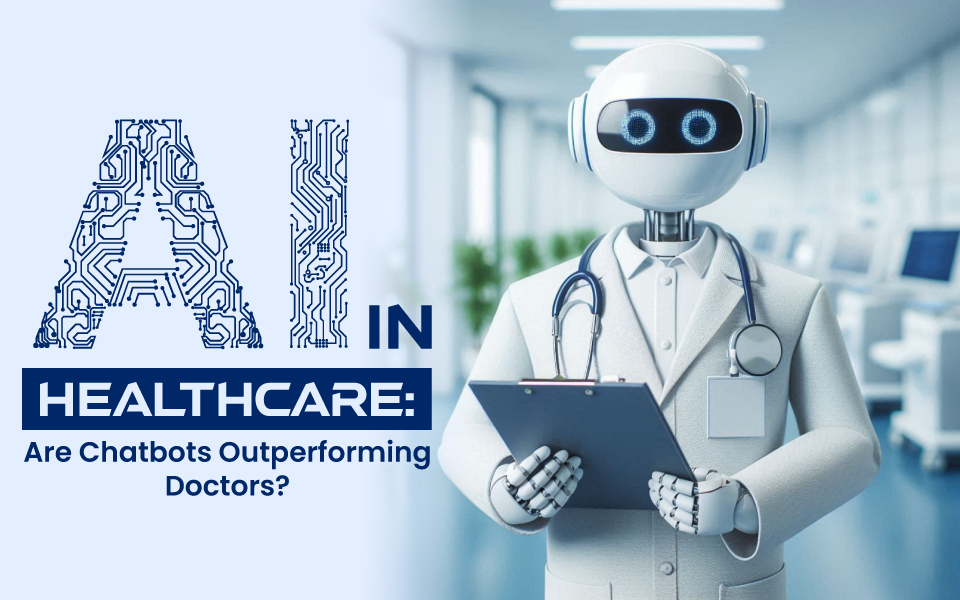
In 2025, AI in healthcare has reached new heights, transforming how medical professionals deliver care. Among the most significant advancements is the integration of chatbots in medicine, enhancing efficiency, accuracy, and accessibility. AI technology in 2025 is not only reshaping patient interactions but also empowering healthcare assistants to support doctors like never before.
The Rise of AI in Healthcare: A Brief Overview
AI in healthcare has evolved dramatically over the past decade. What started as simple data analysis tools has grown into complex systems capable of diagnostics, patient monitoring, and administrative support. The rise of AI has modernized the medical field, from predictive analytics to robotics-assisted surgeries. Among these advancements, AI chatbots have emerged as essential tools, offering scalable, reliable support to healthcare providers.
Chatbots in medicine have gained popularity due to their ability to provide immediate, accurate information, handle repetitive tasks, and assist doctors in making informed decisions. As AI healthcare trends continue to evolve, chatbots play a pivotal role in improving patient outcomes and streamlining workflows.
What Are AI Chatbots and How Do They Work in Healthcare?
AI chatbots are intelligent software programs designed to simulate human-like conversations. In healthcare, they utilize Natural Language Processing (NLP) and machine learning to interact with patients, gather information, and assist medical professionals.
Medical chatbots understand patient queries, analyze symptoms, and provide initial assessments. They can answer common health-related questions, guide users through symptom checkers, and collect detailed patient history before consultations. By leveraging chatbot technology, healthcare providers enhance efficiency and reduce manual workloads.
NLP in healthcare allows chatbots to comprehend complex medical language, enabling accurate responses and meaningful patient interactions. These AI chatbots are revolutionizing healthcare by bridging the gap between patients and providers.
Key Ways Chatbots Are Assisting Doctors in 2025
3.1 Automating Routine Administrative Tasks
One of the most significant benefits of healthcare chatbot assistants is their ability to automate administrative tasks. AI chatbots handle appointment scheduling, send reminders, and manage patient records with minimal human intervention. This automation reduces the administrative burden on healthcare providers, allowing them to focus on critical medical tasks.
By improving medical practice efficiency, chatbots streamline operations, reduce wait times, and ensure patients receive timely care.
3.2 Enhancing Diagnostics and Decision Support
Chatbots are increasingly integrated into AI diagnostic tools, assisting doctors in symptom reviews and suggesting possible diagnoses. By accessing vast medical databases and Electronic Health Records (EHRs), chatbots support accurate decision-making and help doctors cross-reference patient information.
AI in diagnostics ensures faster, data-driven assessments, improving accuracy and supporting healthcare teams with valuable insights.
3.3 Providing Remote Patient Monitoring and Care
The rise of telemedicine and wearable devices has opened new possibilities for remote patient care. AI healthcare assistants, integrated with chatbots, monitor patient conditions in real-time, analyzing data from IoT devices and wearables.
Chatbots track vital signs, detect anomalies, and alert healthcare providers when necessary. This proactive approach enhances patient care, reduces hospital readmissions, and supports continuous health monitoring.
Benefits of AI Chatbots in Healthcare
4.1 Increased Efficiency and Time Savings
Healthcare efficiency is crucial in managing growing patient demands. Chatbots significantly save time by automating repetitive tasks, enabling doctors to prioritize complex cases.
Improving healthcare workflows leads to better resource utilization, reduced burnout among medical staff, and enhanced patient care delivery.
4.2 Improving Accuracy and Reducing Human Error
AI-driven chatbots play a vital role in improving accuracy and reducing medical errors. By cross-referencing vast medical data, chatbots minimize the risk of incorrect diagnoses or medication administration.
AI reduces mistakes in medicine, ensures higher standards of care, enhances patient safety, and supports healthcare teams with reliable information.
4.3 Enhancing Patient Satisfaction
Patient satisfaction is at the core of modern healthcare. AI chatbots for patient care offer quicker responses, consistent communication, and 24/7 support.
Patients appreciate the accessibility and convenience chatbots provide, leading to improved trust, better communication, and more positive healthcare experiences.
Challenges and Limitations of AI Chatbots in Healthcare
Despite their numerous advantages, AI chatbots face challenges in healthcare. Data privacy and security remain top concerns, as chatbots handle sensitive patient information. Ensuring robust healthcare data security is essential to maintain patient trust and comply with regulations.
AI ethics in medicine is another area of focus. While chatbots assist with routine tasks, complex medical situations still require human expertise. Over-reliance on AI without proper human oversight can lead to errors or ethical dilemmas.
Chatbot limitations include the inability to handle nuanced or emotionally sensitive cases, emphasizing the need for human-AI collaboration in healthcare.
The Future of AI in Healthcare: What’s Next?
The future of AI in healthcare looks promising, with AI advancements in 2025 setting the stage for even greater innovation. Chatbot evolution will focus on delivering more personalized care, incorporating emotion detection, and improving conversational abilities.
As AI healthcare trends progress, chatbots will become more intuitive, supporting doctors with deeper insights, predictive analytics, and comprehensive patient care. Integration with advanced technologies like AI-powered diagnostics, remote monitoring tools, and smart wearables will further transform healthcare delivery.
Future developments in AI healthcare aim to enhance collaboration between technology and medical professionals, ensuring patient-centric, efficient, and accurate healthcare systems.
Conclusion
In 2025, AI in healthcare is reshaping how doctors deliver care, with chatbots leading the healthcare revolution. From automating administrative tasks to supporting diagnostics and remote monitoring, chatbots in medicine are improving efficiency, accuracy, and patient satisfaction.
Despite challenges like data security and ethical considerations, the role of AI healthcare assistants continues to grow, providing vital support to medical teams.
To explore the latest tools transforming healthcare, check out the Top 10 AI Chatbot Platforms for Websites in 2025: https://hereandnowai.com/ai-chatbot-platforms-for-websites-2025/
Stay connected with us on HERE AND NOW AI & on:


this blog article is so good